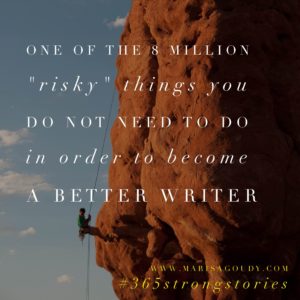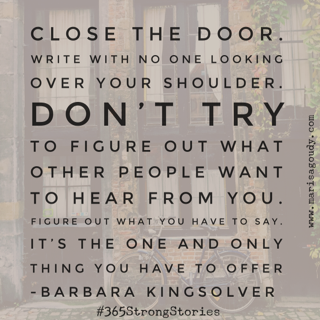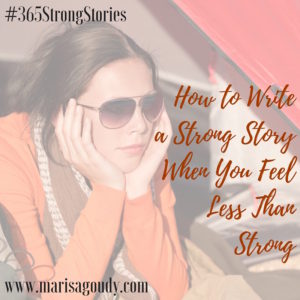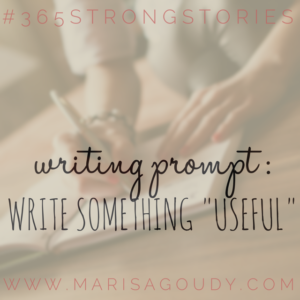
BLOG
This Is the Worst Writing Advice I've Heard In a While
 What do you imagine your favorite novelist is doing right now? Is she being romanced by some gorgeous hero? Is he resolving a generations-long family feud? Perhaps the person who writes those best sellers you love to take to the beach is on a two week bender that will be resolved with a trip around the world to find herself.
Nah. Most likely she’s updating her Facebook page and booking flights for her next appearance at Barnes and Noble somewhere outside of Chicago.
What do you imagine your favorite novelist is doing right now? Is she being romanced by some gorgeous hero? Is he resolving a generations-long family feud? Perhaps the person who writes those best sellers you love to take to the beach is on a two week bender that will be resolved with a trip around the world to find herself.
Nah. Most likely she’s updating her Facebook page and booking flights for her next appearance at Barnes and Noble somewhere outside of Chicago.
And what about your favorite blogger? Is he saving a kitten from a tree? Is she landing an agent to make that blog into a book? Maybe that writer you love to see in your newsfeed is water skiing in the Mediterranean while contemplating the next viral post.
Doubtful. She’s probably trying to scrub the mysterious sticky spots off the counter so she can put down her laptop and get 200 words down before the family comes home and everything goes from messy to noisy and messier.
As a writing coach, I get to give my share of writing advice. I also get the chance to hear what other writers and non-writers say about how to make the process easier and how to produce more engaging stuff.
Some of that advice is brilliant and I do my best to embody it so that I can offer my own version of it. And some of it makes my skin crawl.
Myth: Your content isn’t engaging your audience so you must be a boring person
Recently, a professional who keeps a blog to promote her business was brought to tears by a coach who declared that if your writing isn’t connecting with people it must mean you have a boring life. The advice was to go out and take some risks. And then, I guess, come back and "wow" people with how adventurous and special and fabulous you are.
This is lazy advice. Clearly it’s also damaging advice. And, in this writer’s opinion, going bungee jumping or visiting Tahiti or going on a blind date aren’t necessarily going to make you a better writer.
If you feel that your writing isn’t connecting with people you don't need more "material." Instead, you need to give yourself time and permission to do something with your human moments.
Readers don’t seek high drama and “amazing” tales when they're looking to heal a broken heart or connect with the guy sitting beside them on the couch. They need to see what's possible in their everyday lives. They need to see how life can be a little more beautiful or bearable before they’re going to care about how bold you are.
"Go be more interesting" is the kind of counsel offered by someone who is afraid of the process of meeting yourself in the silence of the page.
Trust the magic that happens in the little moments of life. To make a connection at the simple, truthful level of the human heart you have to remember that this beautiful organ almost always beats along in the most perfectly mundane way.
When you're writing your next blog post, meet your ideal clients where they are. Don’t drag yourself up a mountain just to find them.
Be who you are. Write about who you are in your everyday mess and everyday loveliness and everyday struggle. That's what will make readers care. That's what it means to connect.
Learn how to tell real stories that matter to you and to your ideal client in the You, Your Stories, and Your Audience ecourse. Doors are open now!

The best writing advice you'll ever want to ignore
 “Close the door. Write with no one looking over your shoulder. Don't try to figure out what other people want to hear from you; figure out what you have to say. It's the one and only thing you have to offer.” - Barbara Kingsolver
This is some of my favorite writing advice. Some of the time.
“Close the door. Write with no one looking over your shoulder. Don't try to figure out what other people want to hear from you; figure out what you have to say. It's the one and only thing you have to offer.” - Barbara Kingsolver
This is some of my favorite writing advice. Some of the time.
Kingsolver is right. Writing for the marketplace and trying to please the masses every time you tell a story sets you on the path toward mediocrity and misery. There's no guarantee that anything will sell or that anyone will care. If you don't at least write for yourself, you're writing for no one at all.
And yet... Kingsolver is not talking to bloggers, to those of us who are writing to build a business and connect with the people whose lives will be changed by the programs you offer and the services you provide.
For us, there must be a time for diving deep and figuring out the message. You need time to look within in find the Sovereign Story that you must share with your community.
But then, it's necessary to open the doors and the windows and the browser and the Facebook feed. You need to look to what people are worried about and longing for and use your writing to connect your personal stories with the stories they need to hear.
I've created a class called the Story Triangle that gives you insight into how to honor your audience, your story, and yourself when you sit down to create online content. It will change the way you look at blogging and connecting to your clients.
How to Write a Strong Story When You Feel Less Than Strong
 Making blogging, newsletter, and other content marketing details when you're sick, stressed, or sad... It's one of the toughest parts of running a practice or a small business because, let's be honest, you're pretty much always writing this week's material just days or hours before it goes live.
What happens when life or your mood gets in the way of getting yourself in front of your audience?
Making blogging, newsletter, and other content marketing details when you're sick, stressed, or sad... It's one of the toughest parts of running a practice or a small business because, let's be honest, you're pretty much always writing this week's material just days or hours before it goes live.
What happens when life or your mood gets in the way of getting yourself in front of your audience?
First, ask yourself: MUST I get this written today?
That depends on several factors, so go deeper and ask yourself a few more questions.
Are these self-imposed deadlines or did you promise a guest post or something that is going to print?
When another site or publication is waiting on you, writing becomes a job you simply need to do. I suggest you set a time, sit down in that chair, and put words on the page. Call in a friend or an editor to help you bring it up to your "I feel fabulous!" standards if you're having trouble connecting your ideas and connecting to readers.
Breaking a promise to yourself is no easier than letting down a colleague or an editor, but it may have fewer longterm consequences. Can you forgive yourself for posting on a Friday instead of a Thursday? If you're not in the middle of a big launch cycle, can you skip on the newsletter this week?
When you set publication schedules for yourself, be clear about your own boundaries. Be realistic and be compassionate with yourself.
In my case, a #365project offers ZERO wiggle room. Daily means daily and skipping a day seems like a really big problem. The pay off on showing up every day is huge, but there is a big price. I admit that I am looking forward to a nice, manageable weekly project for 2017! (Editor's note: by mid-May 2016 I realized that a daily publishing project was a terrible idea for me.)
If you decide you MUST write even when you're not feeling like yourself...
Look into your own working style. How do you handle other projects when you just don't feel good?
Are you more successful when you muscle through (and then take a much needed rest after)?
Or, are you more productive if you are tender with yourself throughout? Do you thrive with lots of tea breaks and gentle stretching and doing the work in the corner of the couch wrapped in your favorite blanket?
What if writing wasn't a chore? What if it was your solace?
When you are writing a post that comes from the heart, try to look at blogging itself as part of your own healing process.
After all, as a therapist or healer or creative being, many of the issues that your ideal reader faces are likely related to low energy and longing to get the zest back. People appreciate it when you meet them where they are - though do remember that your job is to offer hope and some sort of next, positive step.
Write from a place of quiet and restoration. Let the message be soft. This post may take way longer to write than it "should." Let that be ok - especially if the the alternative is "I feel crappy" default mode whether that's a Netflix binge or staring vacantly at your Facebook feed.
Write what feels good today and call that your "self-focused first draft." Get to bed early tonight and come back to things in the morning. Then, thanks to the gifts of distance and perspective, you can tighten up your sentence and paragraph structure and look at the whole piece in terms of the needs and interests of the ideal reader.
Need help deciding how to look at your writing through the eyes of the ideal reader? Start by learning the Story Triangle.
Writing Prompt: Write Something “Useful”
The bar you set for product development should be the same bar you set for marketing—especially content marketing. People should know what they can expect from engaging your content and how it will help them transform something about their life or business. This cannot be vague. It cannot be hyperbolic. If you want it to be effective (you do), it needs to be incredibly specific and measurable. People need to be able to know when the objective is reached.
A promise to help you live your dream life or “crush it” in business is not a promise that can be kept. It’s not a good value proposition. It cannot be measured.
This comes from a Tara Gentile post that totally opened my eyes to some of my own blind spots when it comes to writing and content marketing. I’ll be diving into all that throughout this week’s #365StrongStories posts.
 In the meantime, I invite you to take a first step toward thinking about how to ground your stories in something real and measurable.
In the meantime, I invite you to take a first step toward thinking about how to ground your stories in something real and measurable.
Take an incident or a moment of inspiration from your weekend. Something that made you say “I wonder if that would make a good blog post?” Write down a first draft that focuses on your thoughts and experiences. Then, walk away and come back and craft a second version that helps your ideal client “transform something about their life or business.” Be a bit strict with yourself. Cut away the fluff and refuse to be vague or hyperbolic. Be real and be helpful.
Send that second draft to me or tag me when you post the final version on your blog and social media!
The content writing that is worth your time is part of a broader plan
I love it when the core of my work gets challenged, I realize I agree with the argument, and I feel all the stronger about doing what I do in a way that truly serves the greater good.
This is how I felt when I listened to Jonathan Fields of Good Life Project talk about “The Content Marketing Delusion.”
Jonathan's argument - wonderfully delivered in one of his short weekly “riffs”:
Content is more about sustained growth, positioning, and trust and, yes, eventually leads than it is a high probability vehicle for launch and accelerated growth.

Put simply:
Content is your long game. Hustle is your "now" game.
Challenging the "When all else fails, blog!" mentality
Jonathan goes on to talk about how hiding behind the blog page or the podcast mic and relying on content creation can be an act of self-protection. After all, hitting publish is easy. Gearing up for conferences or calling potential clients or influencers… <gulp!>
I launched my #365StrongStories because I loved to write and because I wanted to walk the content creation walk, yes.
A few dozen posts into my 2016 project, however, I saw that I was allowing a story-a-day to monopolize my energy because I felt safe in my private creative space. I was praying my stories would be seen, but also pleased that it was all on my own little marisagoudy.com terms.
That said, I have immense compassion for myself on this one. After all, mothering small children doesn’t exactly set you up to attend lots of snazzy networking gigs in the city.
And think about Susan Cain's book Quiet and what she taught us about introversion (and even the needs of gregarious extroverts). Depending on your constitution, putting yourself out there might require more energy than you can spare. Based on the reality of my own daily life, I just didn’t have the energy to do more or show up anywhere but my own blog most of the time.
All of that is OK, but you have to align your daily actions with the professional and creative dreams if you expect to succeed.
I wasn't building the livelihood my family needed by simply writing a lot.
"Just write" can't be the only visibility strategy for an entrepreneur with bills to pay. Writing and exploring ideas is satisfying, but it doesn't fill the belly. Marketing and connecting with people who will take action based on those brilliant words is what makes entrepreneurship work.
Oh yes, the hustle.
Jonathan’s message was big, fat moment of TRUTH - even though, upon first glance, his title it may look like a slam of my bread-and-butter writing coaching work.
The content writing that is worth your time is part of a broader plan
Not so long ago, this podcast might have sent me into a panic. How could I build a business around helping people tell stronger stories if content marketing is a “delusion”?
Blogs and guest posts and free reports do have a key role to play for many entrepreneurs and private practice owners. My work is vital to the right people who are doing the writing for the right reasons.
If someone is opening a brand new business or practice and expects to write some blog posts and expects the appointment calendar to fill, however, my #1 job is to remind them that content is part of a bigger puzzle.
Content connects, it strengthens relationships and establishes loyalty, but as Jonathan says, you gotta “hustle”
"Hustle" is a tricky word. When Brene Brown told us we didn't have to "hustle for worthiness" I was thrilled to leave all the stress of hustling in the dust.
But when you tune into Jonathan's quick episode I think you'll see the word in a broader, more constructive context.
Most of the time, you need that first digital or real life introduction. You need to move it and shake yourself out of your creativity cave and find your first readers who will love and share your content. You find them through conversation and asking the right questions, not by saying "hi, I wrote this, read it!"
It would be great to rely on "love at first blog post" but it's almost never that simple.
Again, this Good Life Project podcast came at the perfect time.
Right now, I am hustling in a way that feels great to me, connecting with my own ideal clients (and genuinely fabulous humans) on Facebook groups like Melvin Varghese’s Selling the Couch Community and Agnes Wainman’s Blissful Practice.
And, as my business matures and my family is able to do without me for a few nights, it is time to take that "hustle" into the real world. I'm booking a bunk at Jonathan's Camp GLP. (Will I see you there in August?)
Remember, the writing coach isn't telling you to quit writing
There's another side of content creation that Jonathan doesn't have time to address in his riff: the way that writing helps you develop your vision, your professional brand, your creative power.
Writing and content development are absolutely necessary as you develop your online presence and platform. They are fundamental to growth. Just be sure that you understand that writing and publishing alone aren't likely to catapult you to six figures or to whatever "enough" is for you.
